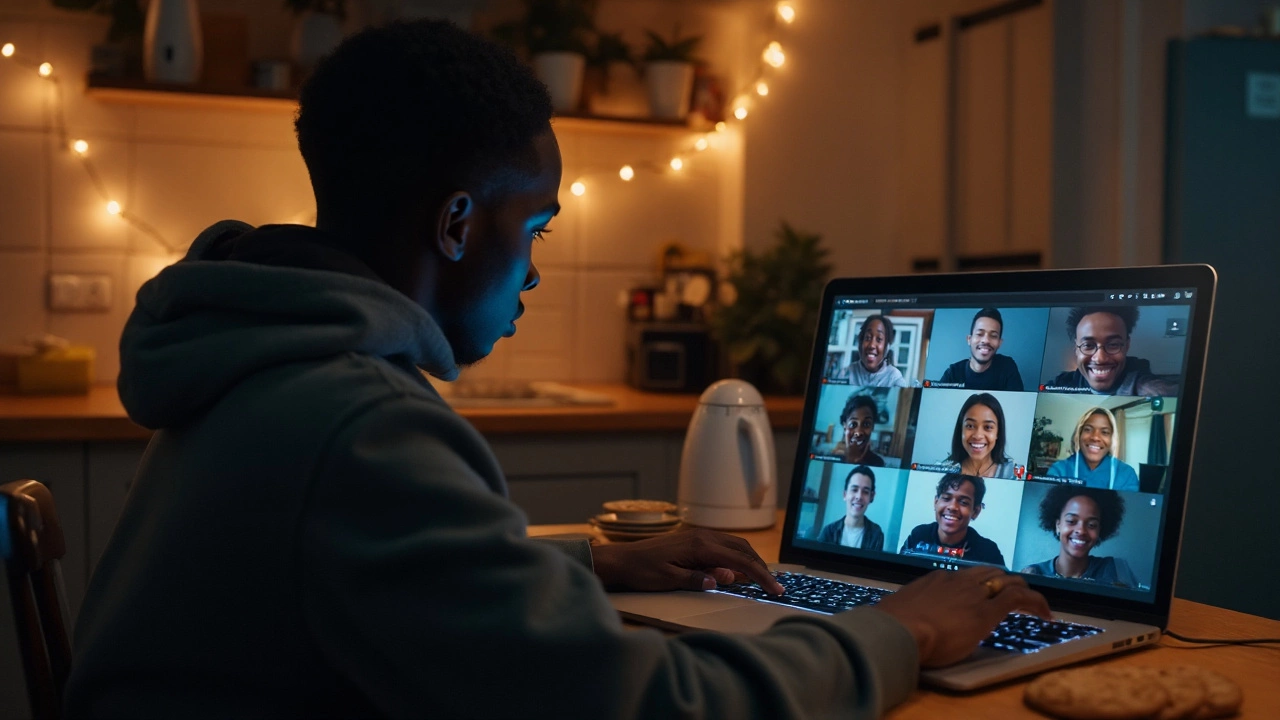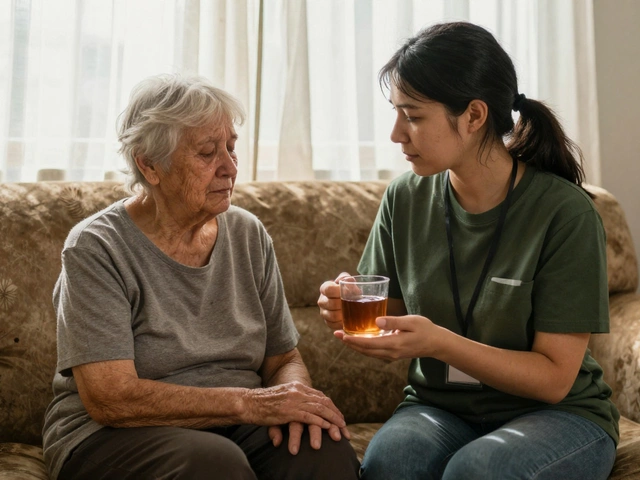How to Find Social Support: Practical Steps, Sources, and Safety Tips
Social support is a human relationship network that provides emotional care, practical help, and useful information during stress, illness, or change. The US Surgeon General called loneliness a public health crisis in 2023, and a well-cited meta-analysis led by Julianne Holt-Lunstad found that strong relationships are linked with better survival rates. You don’t need a huge circle to feel better-you need the right people, in the right roles.
Finding social support isn’t about suddenly becoming outgoing. It’s a series of small moves: knowing what you need, spotting your current allies, and adding one or two reliable sources where there are gaps.
TL;DR
- Identify your top need right now: emotional comfort, practical help, or information. Choose one to target this week.
- Audit your network: list 5 people and 3 places you could ask; match each to a need.
- Pick one channel to add: a support group, therapist, community hub, online forum, or a helpline.
- Use ready-made scripts to reach out; keep messages short and specific.
- Protect boundaries: set topics, time limits, and privacy rules; leave unhealthy spaces fast.
Know what kind of support you actually need
Different needs call for different people. If you mix them up, you’ll feel ignored or frustrated. Here are the core types:
Emotional support is empathy, validation, and a sense of being seen-think listening without fixing, gentle check-ins, and warmth. Use this when stress spikes, grief hits, or you feel overwhelmed. You want someone who can sit with feelings.
Instrumental support is practical help-rides, meals, childcare, forms, a spare pair of hands. Use this when fatigue, logistics, or money are the main problem.
Informational support is advice, lived-experience tips, and evidence-based guidance from credible sources or peers. Use this when you’re deciding on treatment, services, or next steps.
There’s also companionship-shared activities that cut isolation. A weekly walk or a hobby crew won’t solve everything, but it lowers stress hormones and gives mood a nudge.
Do a quick audit of your current network
Before you add new people, map what you already have. Take five minutes and sketch four columns: home/family, work/study, community, online.
- List 2-3 names or places under each column. Examples: a cousin you text, a colleague, a club, a moderated forum.
- Label what each can offer (E = emotional, I = instrumental, Info = informational).
- Circle gaps. Maybe you have listeners but no doers, or advice but no warmth.
- Choose one gap to fill this week, not all of them. Momentum beats perfection.
Heuristic: if your stress is acute (today/tomorrow), prioritize instrumental help and helplines. If it’s chronic (months), add a steady space like a support group or therapy and a low-effort companionship habit.
Where to find new support (online and face to face)
You have options. Mix and match to suit your energy, budget, and privacy needs.
Support group is a facilitated gathering of people with shared challenges-grief, parenting, recovery, chronic illness-focused on mutual aid and coping skills. Good groups have a clear topic, ground rules, and a trained facilitator. They’re powerful for emotional and informational support.
Psychotherapist is a licensed mental health professional who provides evidence-based treatment for emotional and behavioral concerns. Use therapy when patterns are stuck, symptoms are intense, or you want a confidential space to work things through. The American Psychological Association and national health services publish clear guidance on what therapy can and can’t do.
Community hubs like libraries, faith communities, and local centers host interest groups, classes, and peer meetups. These are great for companionship and light instrumental help (like ride-shares or meal trains).
Online community is a moderated digital space-forums, group chats, platforms-where people share experiences and practical tips. Look for transparent rules, active moderation, and topic-specific channels. Consider a pseudonym if privacy matters.
Helpline is a confidential service that offers immediate support, crisis de-escalation, and referrals by phone or text. Use it when you need help now or you’re unsure where to start. Many countries maintain free, 24/7 options staffed by trained counselors.
Other spots worth checking: workplace employee assistance programs, student services, cultural associations, sport clubs, and volunteer crews. In many places, primary care doctors can point you to local groups and subsidized therapy.
Compare your options at a glance
| Source | Anonymity | Cost | Response speed | Best for | Risks |
|---|---|---|---|---|---|
| Friends/Family | Low-Medium | Free | Fast if close | Emotional, Instrumental | Boundary blur, advice pressure |
| Support Group | Medium | Free-Low | Weekly/Scheduled | Emotional, Informational | Variable quality, triggers |
| Psychotherapist | High | $$-$$$ (may be subsidized) | Scheduled | Emotional, Skills, Treatment | Waitlists, cost |
| Community Hub/Class | Low | Free-Low | Weekly/Scheduled | Companionship, Routine | Social energy required |
| Online Community | Medium-High | Free-Low | Fast/Asynchronous | Informational, Emotional | Misinformation, trolling |
| Helpline | High | Free | Immediate | Crisis triage, Next steps | Short-term only |
What to say: simple scripts that work
Short and specific beats long and vague. Copy, paste, tweak.
- To a friend: “Hey, rough week. Could you talk for 10 minutes tonight? I don’t need fixing-just a friendly ear.”
- To ask for practical help: “I’ve got a medical appointment Wednesday. Any chance you could drive me there at 3 pm? I’ll grab the coffees.”
- To a GP or student counselor: “I’ve had low mood for months and I’m struggling. Can you recommend local support groups and a therapist who works with anxiety?”
- To a group moderator: “New here. Is this space okay for grief after sudden loss? Any content warnings I should know?”
- To start at a meetup: “Hi, I’m new-what do you enjoy most about this group?”
Pro tip: include your preferred channel (text, call, in-person), your time window, and what you’re asking for (listening, advice, logistics) so people can say “yes” confidently.
Boundaries and safety: how to protect your energy
Good support strengthens you. Bad support drains you. Watch for these:
- Respect for “no”: healthy people accept limits; unhealthy ones guilt-trip.
- Time boxes: set 20-40 minute windows for heavy chats; schedule lighter follow-ups.
- Topic lines: it’s okay to say, “I’m not discussing finances today.”
- Online privacy: use a pseudonym, turn off location, and avoid posting identifiable details.
- Exit rule: if your heart rate spikes and you feel smaller after most interactions, leave the space.
Evidence-based note: structured programs (like cognitive-behavioral tools) often blend emotional and informational support in a predictable format, which helps when unstructured venting goes in circles. The World Health Organization and national mental health bodies publish open guides on coping skills you can use alongside support from people.
If you’re busy, shy, rural, or new to town
- Time-poor: choose one high-yield action-a weekly group or a 30-minute therapy slot. Batch social time with errands (walk with a neighbor, co-work at the library).
- Introverted: join activity-first spaces (crafts, hiking, coding clubs) where talk is optional. One-to-one coffees beat big mixers.
- Rural: lean on online communities and regional helplines; plan a monthly trip for in-person connection to reduce isolation.
- New migrant or student: start with language exchanges, campus clubs, and cultural associations. Shared identity reduces the early awkwardness.
- Caregiver: look for condition-specific support groups; many run hybrid sessions so you can join from home.

A one-week plan to build momentum
- Day 1: Pick your top need (emotional, instrumental, informational). Write it at the top of a sticky note.
- Day 2: Do the network audit (5 names, 3 places). Match one person/place to your need.
- Day 3: Send one message using a script. Keep it under 50 words.
- Day 4: Join one space (support group, class, or online forum). Lurk for 24 hours to learn the vibe.
- Day 5: Ask a small, concrete favor or share a short update. Specific asks are easier to fulfill.
- Day 6: Schedule the next touchpoint (calendar invite, recurring walk, weekly online chat).
- Day 7: Review: What felt good? What felt heavy? Keep the good; cut the heavy.
Quality checklist for any support source
- Clear purpose (what this group or person can offer-and what they can’t)
- Ground rules and enforcement (especially online moderation)
- Competence (facilitator training, lived experience, or professional credentials)
- Fit (shared context, language, culture, or schedule)
- Energy balance (you leave feeling steadier most of the time)
How to keep support strong
Relationships thrive on rhythm and reciprocity.
- Set a simple cadence: “We walk Tuesdays” or “Family call Sundays.” Routine beats motivation.
- Reciprocate in your lane: if you can’t offer rides, offer notes, reminders, or a cooked meal.
- Use the 2-minute rule: if a check-in takes under two minutes, do it now. Momentum compounds.
- Keep it specific: “Thinking of you before your interview-want a quick pep talk?”
- Protect recovery time: too much intensity burns everyone out. Mix heavy talks with light moments.
Related concepts worth exploring next
- Resilience: skills that help you bounce back faster-with or without big networks.
- Attachment styles: patterns that shape how you ask for and receive care.
- Social capital: the value inside your connections and how to grow it.
- Behavioral activation: small, scheduled actions that lift mood and bring people into your week.
- Peer support: trained peers with lived experience offering structured help.
When to seek professional help urgently
If you or someone you love is at risk of harm, reach out to a national helpline or emergency services in your country. That’s what helplines are for-immediate, confidential help and fast referrals. If self-harm thoughts are frequent or plans are forming, a professional, structured response matters more than waiting for a friend to reply.
Credibility signals and where guidance comes from
Two anchors: (1) population-level work on social connection and health-Holt-Lunstad’s meta-analysis and the 2023 US Surgeon General advisory-and (2) practice standards from national psychological associations and health ministries about therapy and group facilitation. These sources converge on the same point: consistent, fitting support improves outcomes across mental and physical health.
Glossary: quick definitions you can point to
Emotional support means empathy and validation, not problem-solving.
Instrumental support means concrete help (transport, childcare, meals).
Informational support means advice and facts from credible sources or experienced peers.
Psychotherapist is a licensed clinician offering structured treatment in a confidential setting.
Support group is a facilitated peer space built around a shared challenge.
Online community is a digital group with rules, moderators, and topic threads.
Helpline is an immediate, confidential support service by phone or text.
Frequently Asked Questions
How do I start if I feel awkward asking for help?
Use a tiny script and send it as a text: “I’m having a tough week and could use a quick check-in. Do you have 10 minutes this evening?” Keep it short, give a time box, and say what you need (listening vs. advice). Most people want to help but don’t know how. Specifics make it easy to say yes.
What if my family isn’t supportive?
Build a non-family net. Combine a support group for emotional support, an online forum for informational support, and a community activity for companionship. Set clear boundaries with family (topics, time limits), and route practical help to friends or neighbors. You don’t need every source to do every job-mix specialists.
How can I tell if an online community is safe?
Check for visible rules, active moderation, clear reporting tools, and topic-specific channels. Lurk 24-48 hours. Scan recent posts for empathy vs. pile-ons. Avoid spaces that share medical advice without sources or discourage professional help. Use a pseudonym, disable location, and never post sensitive details (addresses, workplaces).
Therapy or support group-how do I choose?
Choose therapy for confidential, personalized treatment, especially if symptoms are intense or long-running. Choose a support group when you want peer empathy and lived-experience tips. Many people use both: therapy for depth, group for community. If cost is a hurdle, look for subsidized or community-run groups and low-cost clinics.
How fast should I expect results?
Mood often lifts a little after the first helpful interaction. Lasting change takes rhythm-think weeks to set a routine and months to feel durable. Aim for one steady commitment (weekly group/class) and one quick check-in habit (2-minute texts). Track your energy before/after interactions to see what truly helps.
What if I get rejected or ignored?
It stings, but it’s common-people are busy, not necessarily uncaring. Send a second, shorter message with a clear option ("Another time works" or "All good if not"). Then ask someone else. Diversify your asks so no single person carries everything. Keep the momentum-support is a portfolio, not a single stock.
How do I support others without burning out?
Set limits up front (time, topics). Offer what you can sustain-listening, a weekly ride, or help with paperwork-rather than saying yes to everything. Share resources (group schedules, helplines) so you’re not the only lifeline. After heavy talks, do a light activity and recharge. Boundaries protect both sides.
Are there quick signs a group is worth staying in?
Yes: you feel heard, rules are applied fairly, advice is offered gently, identities are respected, and there’s a plan for tough threads. You leave most sessions steadier, not smaller. If personal attacks or medical misinformation slide by unchecked, move on-there are better rooms.
What evidence supports building social connections?
Large reviews link strong social relationships with better mental health, lower mortality risk, and improved treatment adherence. The 2023 US Surgeon General advisory highlights the health impact of loneliness, and national psychological associations outline effective group and individual supports. Translation: consistent, fitting connection is not a luxury-it’s protective.







